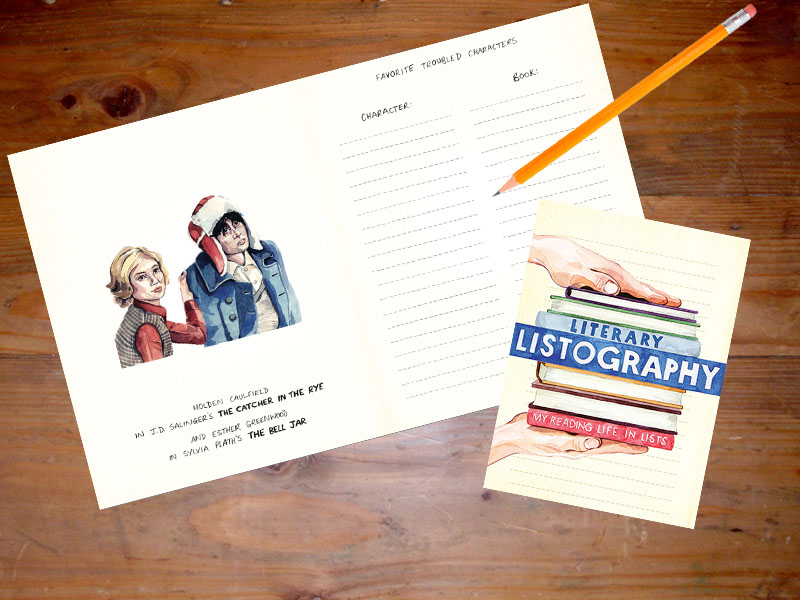For those aren't familiar with the Listography books, they are an offshoot of the website and app that encourages users to create and share public lists about anything (you can read about it on the Listography website). Since the first Listography book was published in 2007, there have been 12 books in the series that focus on different themes, including friendship, food, and film.
 |
| Picture from Listography.com |
Besides the great list ideas, Literary Listography had a number of features that I appreciated and that added to the experience. Each prompt is accompanied by a full-color picture depicting a book related to the prompt it faces. For instance, a picture of a backpack and hiking books symbolizing Cheryl Strayed's Wild goes with the prompt "My Favorite Memoirs and Autobiographies." Besides this, the physical features of the book make it a pleasure to use. The pages have a nice weight and texture that hold up to even fountain pen ink and resist smudges, and the book pages lie flat, which makes it easy to write inside.
If you are looking for a book to help you record your reading life and thoughts, Literary Listography could be the perfect book for you. It would also make a great gift for the book lover in your life (just be prepared for him or her to become preoccupied by it).






